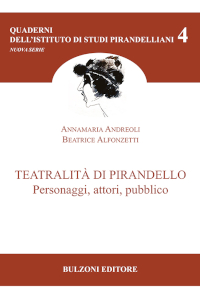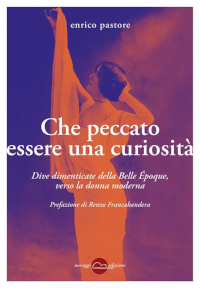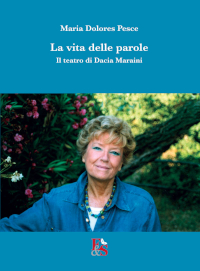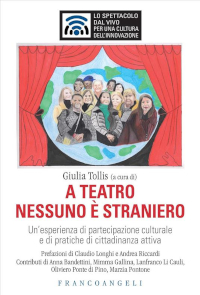Caro Diario,
non ci si sente da un bel po'...Come dici? Quasi un anno? No, quasi un anno non credo, ma è comunque da parecchio...Come dici ? Che hai letto il bando del Premio Riccione e io non c'ero? Che era da tanto che c'ero e tuttoduntratto, comècomenonè non c'ero più? Che proprio a te, diario, certe cose non le dico....Va bene, ti sei risentito, mai e poi mai avresti pensato...che anche a Riccione, anche al Premio Riccione....va bene diario, te ne parlerò, ma non ora.......anzi per ora ti rispondo solo sulla mia assenza dal comunicato del 51° Premio Riccione: sì, il nome non c'era, ma il resto sì, tutto un copiaeincolla di cose scritte negli anni......Cosa dici? Che è un po' come quando le parole rimangono scritte sul muro, ma non si legge più la firma...sì, è un po' così..-.
Ma adesso fammi dire dei Motus e di New York: no, non è una barzelletta: la sai, quella dei Motus a New York? Allora, il cane di Motus, anzi di Daniela, entra al Public Theater e cerca della padrona......non sono capace ddi raccontare barzellette, specie su cani che hanno già il lato comico incorporato... Facciamo così: ti mando il pezzo del New York Times sui Motus - no, non è una barzelletta, è vero - e la mia translation, così, per riannodarci da qualche parte, poi, dopo che ti sarai aggiornato sulle live adventures dei ferocious Motus nella prima e più vecchia delle metropoli vedremo se e come andare avanti...
Intanto, diario, goditi questo Manhattan Transfer...
A presto!
11 gennaio 2011
Going Under the Radar, and Into the Unknown
di JASON ZINOMAN
Traduzione di Fabio Bruschi (testo originale in basso)
Per me la più grande rivelazione di quest'anno è stata la compagnia italiana Motus, una forza della natura,il cui "Too Late" inanella una serie di ben rodati elementi ( esercizi di immedesimazione animale da laboratorio teatrale, reinterpretazione moderna di un testo classico, commentario meta-teatrale) e li gioca con tale abbandono e padronanza da farli sentire freschi. Interpretata (con sopratitoli) da due eleganti, spavaldi performer, SilviaCalderoni e Vladimir Aleksic, la tragedia greca si condensa in un teatro del potere di grandi ambizioni, comunicato con viscerali gesti scenici.
Si inizia con lo stretto abbraccio che enuclea istantaneamente la mistura di amore e violenza che caratterizza le relazioni in scena. Creonte (VA) stringe suo figlio Emone (SC in panni maschili), in piedi sulla scena del Newman Theater,circondati dappresso, su entrambi i lati, dagli spettatori seduti .Questo corpo a corpo viene ripresentato dagli attori in forma di lotta tra due cani latranti, le lingue schioccanti, i denti scoireperti, l'ardore ansimante. Ma presto il bestiale diviene cerebrale.
Tra una scena e l'altra gli attori, ricomposti, discutono dell'interpretazione dei personaggi, facendo riferimenti a politici contemporanei e storie sulla rappresentazione.
L'espediente semplificatorio della performance qui induce a riflettere: c'è un aspetto satirico in questa intellettualizzazione, quasi come se, messa a fianco delle passioni al calor bianco del dramma, essa fosse in qualche modo fuori luogo.
Silvia Calderoni, che passa da Emone a Antigone, si toglie i panni di dosso, strato dopo strato, mentre continua a scriversi sul corpo, ritagliando una insubordinata figura punk di pura aggressione. A contrasto VA è elusivo, di difficile lettura, a tratti nascosto, con addosso maschere, reali o meno.Il suo Creonte aspira a un'autorità distaccata; la drammaturgia della produzione mostra Antigone ridurre le distanze improvvisamente, precipitandosi verso di lui, di nuovo in quell' abbraccio saldo.
Non si può certo dire che"Too Late" sia convenzionale ma, nel contesto del teatro di sperimentazione, c'è qualcosa quasi di antico nella sua intrepida teatralità.
Some international theater festivals have more resources and bigger names. Others may present more radical work. But the reason that I most look forward to Under the Radar, the scrappy January showcase presented by the Public Theater, is that it’s more likely than any other in the city to present someone exciting I never knew before.
That’s a rare pleasure for a reason. Producers of new, adventurous artists need to be able to fail sometimes, but they can’t be wrong too often. A string of tedious shows can turn the intrepid theatergoer into a couch potato. Taking risks while keeping the audience in mind requires a delicate balance, and Mark Russell, the director of the festival, has been doing it as well as anyone for decades.
He benefits from a track record that has established trust with audiences. I had never heard of Richard Maxwell, Mark O’Rowe or Danny Hoch before I saw them at Performance Space 122 in the East Village, which Mr. Russell ran for 21 years. Besides talent, vision and a low budget, these artists have little in common, which speaks to one of Mr. Russell’s strengths on display right now: the range of his taste. Featuring a dizzying mix of dance, comedy and experimental theater, Under the Radar, now in its seventh year, resists thematic pigeonholing.
There are familiar faces (Reggie Watts, whose new multimedia mood piece, “Dutch A/V,” seems more remote than previous shows) and brand-name imports (Daniel Kitson’s solo “The Interminable Suicide of Gregory Church,” Gate Theater’s adaptation of Beckett’s novel “Watt”). What really distinguishes the festival, however, are the wild cards, the shows that send you home searching the Web to learn more.
For me, the biggest revelation this year is the ferocious Italian company Motus, whose“Too Late! antigone (contest #2)” takes a series of well-worn parts (acting school animal exercises, modern spin on a classic text, meta-commentary) and plays them with such abandon and skill that they feel fresh. Acted (with supertitles) by two swaggering performers, Silvia Calderoni and Vladimir Aleksic, it boils down Greek tragedy to high-stakes power plays communicated in visceral theatrical gestures.
It begins with a very tight hug that in an instant encapsulates the mix of love and violence that characterizes the relationships onstage. Creon (Mr. Aleksic) squeezes his son Haemon (Ms. Calderoni, in drag) standing on the Newman Theater stage, surrounded on either side by audience members sitting close by. This grapple is replayed as a battle between two barking dogs, performed by the same actors with clicking tongues, bared teeth and panting fervor. The beastly soon becomes cerebral.
In between scenes, the poised actors discuss interpretation of character, making connections to contemporary politicians and histories of performance. The simplifying artifice of performance is a theme here, but there is a satiric edge to this intellectualizing, almost as if next to the heated passions of the play, it were beside the point.
Ms. Calderoni, who shifts from Haemon to Antigone, keeps taking off layers of clothes and writing messages on her body, striking a defiant punk figure of naked aggression. By contrast, Mr. Aleksic is evasive and hard to read, occasionally hiding, putting on masks, real and otherwise. His Creon aspires for aloof authority; the production’s narrative shows how Antigone shrinks the distance suddenly, racing toward him, back into that firm embrace.
“Too Late!” is hardly conventional, but in the context of experimental theater, there’s something almost old-fashioned about its defiant theatricality.
Many of the other most ambitious works at the festival lean heavily on video. “Bonanza,” conceived and staged by Berlin, a Belgian company comprising Bart Baele, Yves Degryse and Caroline Rochlitz, is a graceful documentary on five adjacent screens portraying a Colorado town with only seven residents.
A miniature set of the town sits above the screens, but the striking cinematography of this desolate landscape, bracketed by the Rocky Mountains, keeps your focus. “Bonanza” begins as an oddly idealized vision of small-town life featuring long stretches of silence and natural beauty, interrupted by its residents’ articulately describing the freedom and pleasures of life off the grid.
It’s a quiet series of character sketches of real people, but then a plot emerges in the form of a petty political dispute involving the town council, inflamed by local rivalries. This portrait of gossipy small-town life could easily be played for laughs, but the film remains respectful and modest. In the end, it suggests that no matter how alluring leaving society may be, the need for community is universal. “Bonanza” is delicately executed but never entirely persuades you that being mounted as a stage play adds much to the experience over what you would get simply watching this work as a film on a single screen.
The same criticism could be leveled, albeit less convincingly, at “Your Brother. Remember?,” a personal and deceptively complicated study of family relationships wrapped inside an inspired conceit. As a kid growing up in Maine, Zachary Oberzan and his brother made fairly faithful re-enactments of movies, including Jean-Claude Van Damme’s 1989 spin on the “The Karate Kid” formula, “Kickboxer.”
Twenty years later, Mr. Oberzan has recruited his brother to do a re-enactment of the re-enactment. The two films, juxtaposed with the original “Kickboxer,” are edited together, showing us voices changed, bodies grown and the pure joy of performance still intact. Along with these films, the show tells the story of the relationship of the brothers through letters and taped interviews. Mr. Oberzan performs some dialogue in person, but most of the show is on screen.
The tone of the piece shifts from silly mockery to earned sentiment as we learn about Mr.Oberzan’s brother’s drug addiction and imprisonment and how their relationship sustained him. It’s a feat that Mr. Oberzan, who also explored his love of 1980s pop culture in “Rambo Solo,” manages to tell a moving story through the film persona of a robotic action star. But the theme he explores with even more depth is the source of artistic inspiration. And while his insights are not original, the way he defends them with video gives the piece a power that is affecting.
For a more bizarre and superficial take on the artistic process, there is “Watch Me Work,” a stunt by the justly celebrated playwright Suzan-Lori Parks, who turns herself into performance art, inviting audiences to watch at no charge as she writes at a wooden table in the Public Theater lobby. She tells us nothing about what’s she’s working on, and her impressive focus amid the chaos of theatergoers coming and going reveals little.
The emptiness of this piece may lead certain overactive imaginations to wander down dark alleys, developing theories about, say, why this Pulitzer Prize-winning dramatist paused to smile at the banana on her desk. The truth is that unlike watching some painters or actors, seeing a playwright working is deeply boring. Watching Shakespeare write “Hamlet” would, I suspect, put even Harold Bloom to sleep.
Under the Radar continues through Sunday at various New York theaters;
undertheradarfestival.com.





